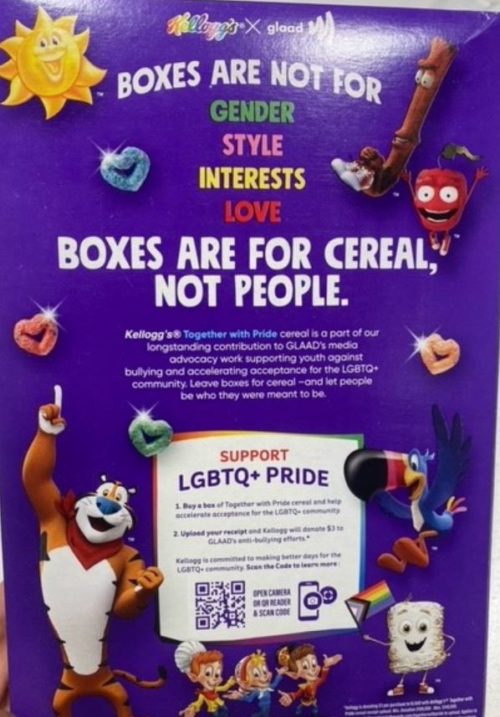I’m on the visionary panel. To register, click here.

Kellogg has issued a new cereal in honor of gay pride month.
And here’s what’s on the back.

The side panel gives examples of pronoun options (he/him, she/her, they/them, or add your own). The top panel is a wrist band on which you can write your own pronouns.
I collect cereal boxes and didn’t want to miss this one. I could not find it in any of the supermarkets I’ve been to. I bought this one online,.
But now that I have it, I am not sure what to make of it.
On the one hand: It’s a partnership with GLAAD. It promotes acceptance, and opposes bullying. Hard to argue with that. It also recognizes the market power of the pride community—but to what end?
On the other: This is a sugary, ultra-processed cereal, aimed at kids, no less.
Non-binary kids, like all kids, should be eating such cereals in small amounts, if at all.
I was curious to see what the press had to say about it—not nearly as much as I expected.
From where I sit, Kellogg is using gay pride to market its cereals. This is about marketing. Period.